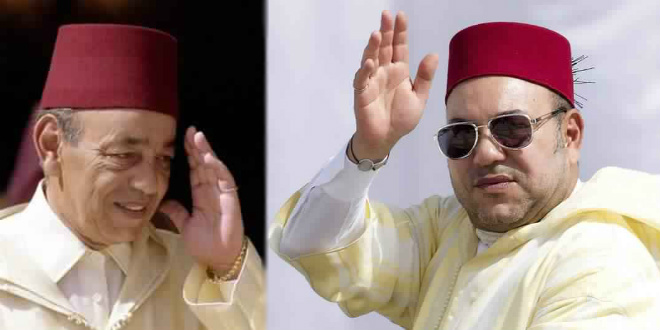Two Kings, One Destiny: From the Green March to the Global Recognition of Morocco’s Sovereignty over the Sahara

Contemporary Moroccan history cannot be understood without acknowledging the impact of two sovereigns who, in their respective eras, shaped the destiny of the Kingdom. Hassan II and Mohammed VI, through their actions and vision, placed the Sahara issue at the heart of Morocco’s national identity and international diplomacy. Their shared legacy represents a royal continuity where courage, strategy, and pragmatism converge to consolidate the country’s unity and sovereignty.
King Hassan II — may God have mercy on his soul — was an exceptional strategist. In 1975, he launched the historic and peaceful Green March, mobilizing hundreds of thousands of Moroccans to assert the Kingdom’s sovereignty over its southern provinces. This bold act was not merely territorial; it symbolized the determination of a united people, ready to defend their dignity, sovereignty, and identity. To this day, the Green March remains a model of popular diplomacy and visionary leadership.
During his reign, Hassan II understood that the Sahara was not only a matter of geography but also of history, culture, and Moroccan identity. His strategic approach laid the foundations for a coherent national project, where territorial unity and recognition of Moroccan sovereignty were non-negotiable. The Kingdom thereby gained both political and moral legitimacy in the eyes of the international community.
Upon ascending the throne, Mohammed VI inherited a rich but complex legacy. With pragmatism and openness, he transformed this legacy into an effective diplomacy, positioning the Sahara issue constructively on the international stage. Under his reign, the Moroccan Autonomy Initiative became the most credible and realistic solution, gaining the support of the majority of UN member states and recognition from major world powers.
This international recognition reflects Mohammed VI’s diplomatic skill, as he has managed to balance firmness with dialogue. More than a territorial matter, Morocco’s sovereignty over the Sahara is now enshrined in the UN’s legal and political framework, strengthening Morocco’s position globally and ensuring regional stability.
Mohammed VI has also demonstrated that leadership is measured not only by force but by the ability to build bridges. His repeated calls for dialogue with Algeria and his commitment to integrating all Sahrawis into a united and diverse Morocco exemplify a path of reconciliation and peace. This conciliatory tone, free from triumphalism, enhances the credibility and legitimacy of Moroccan policy.
Hassan II had the courage to plant the flag in the Sahara; Mohammed VI had the wisdom to raise it high on the international stage. Together, they built a lasting legacy illustrating the continuity of the Moroccan monarchy and the Kingdom’s stability. Today, Morocco stands as a reliable, moderate, and central actor in the Maghreb and Africa, reinforcing its reputation as a united and respected nation. Thanks to these two monarchs, the country has not only secured its borders but also strengthened its international standing. Morocco’s sovereignty over the Sahara is no longer merely an internal issue; it has become a legitimate cause recognized and supported worldwide.
The journey from the Green March to the global recognition of Morocco’s sovereignty over the Sahara illustrates the strength of a coherent strategy and the relevance of long-term vision. Under Mohammed VI’s leadership, Morocco continues to move confidently into the future, faithful to its roots, unity, and values. The Kingdom’s destiny, shaped by the courage and wisdom of two kings, remains a unique example of leadership, diplomacy, and national success.